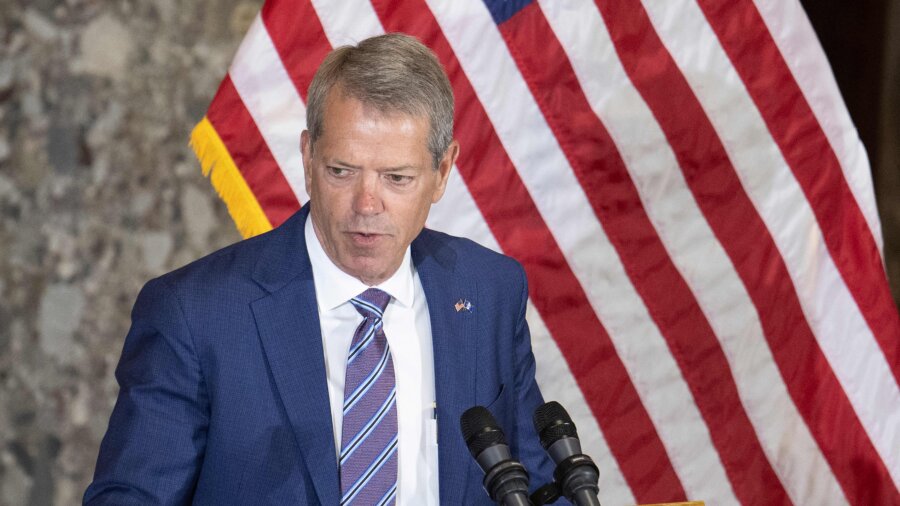Nebraska Gov. Jim Pillen has announced that he will not call a special legislative session to shift the state to a winner-take-all electoral vote system, halting efforts to overhaul the way Nebraska allocates its electoral votes ahead of the 2024 presidential election.
Pillen, a Republican, had pushed for the change, saying it would ensure all Nebraska votes were valued equally, unify the state, and correct a “decades-old mistake” in how its electoral votes are allocated. However, the governor said in a Sept. 24 statement that he had failed to secure the necessary 33 votes in the state’s legislature to pass the measure. Republican state Sen. Mike McDonnell’s refusal to back the proposal was pivotal in the collapse of the effort.
“My team and I have worked relentlessly to secure a filibuster-proof 33-vote majority to get winner-take-all passed before the November election,” Pillen said. “Given everything at stake for Nebraska and our country, we have left every inch on the field to get this done. Unfortunately, we could not persuade 33 state senators. Senator Mike McDonnell of Omaha has confirmed he is unwilling to vote for winner-take-all before the 2024 election.”
Calling McDonnell’s decision to refuse to vote in favor of the change “profoundly disappointing,” Pillen said he has “no plans” to call a special session on this issue ahead of the Nov. 5 presidential election.
McDonnell, a former Democrat who switched parties, said that the current system—where Nebraska allocates two of its five electoral votes to the statewide popular vote winner and one vote to the winner of each congressional district—gives all voters a voice, regardless of where they live or whom they support.
“I respect the desire of some of my colleagues to have this discussion, and I have taken time to listen carefully to Nebraskans and national leaders on both sides of the issue,” McDonnell said on Monday in a statement. “After deep consideration, it is clear to me that right now, 43 days from Election Day, is not the moment to make this change.”
Nebraska is one of only two states, along with Maine, that does not use a winner-take-all approach to allocating electoral votes. The state’s unique system became a point of contention in 2020 after then-presidential candidate Joe Biden won one electoral college vote in Nebraska’s 2nd Congressional District, a seat that covers the Omaha area. This so-called “blue dot” in the typically Republican state has taken on heightened significance in the close 2024 presidential race between Republican nominee former President Donald Trump and Democratic candidate Vice President Kamala Harris.
Harris, according to political analysts, could secure exactly 270 electoral votes—the threshold required to win the presidency—if she wins the battleground states of Wisconsin, Pennsylvania, and Michigan, plus the single vote from Nebraska’s 2nd District. This prospect has made the district a key battleground, with Harris’s campaign pouring resources into Omaha to replicate Biden’s success in 2020.
Trump, who won all five of Nebraska’s electoral votes in 2016 but won only four in 2020, has urged Nebraska lawmakers to change the election law before Americans head to the polls on Nov. 5. The 45th president was critical of McDonnell’s decision to deny the crucial vote needed for the winner-take-all initiative to move forward.
“I would like to thank Governor Jim Pillen of Nebraska for trying to help the Republican Party simplify the complexity of the State’s Electoral Map. It would have been better, and far less expensive, for everyone,” Trump wrote in a post on social media.
While the push for a winner-take-all system has now stalled, McDonnell suggested that Republicans could pursue a referendum to put the issue directly to voters in the future.
Bill Pan contributed to this report.
From The Epoch Times

